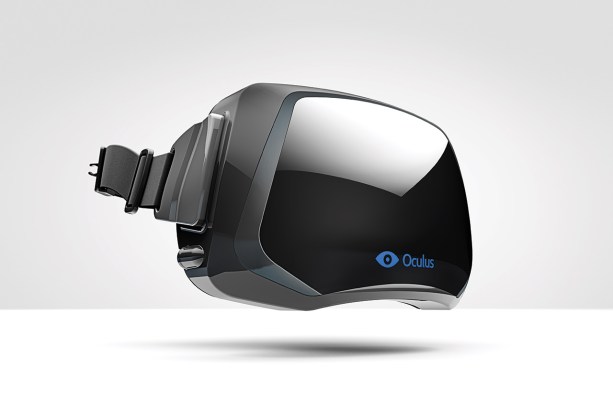The road to immersive virtual reality has been a long and strange one — it was fodder for wide-eyed futurists and engineers for years before it became painfully clear that the sorts of experiences we hoped for were limited by the feeble hardware available at the time.
That doesn’t seem to be the case anymore. It was revealed earlier this evening that Irvine, CA-based Oculus VR raised a whopping $75 million Series B led by Andreessen Horowitz, with participation from Spark Capital, Matrix Partners and Formation|8 to help launch the consumer version of its oft-hyped Rift virtual reality headset. Sadly, the company has declined to talk about its valuation, but we’ve also learned that A16Z’s Marc Andreessen and Chris Dixon will be joining the company’s board.
Let’s put that hefty round in perspective: Oculus nabbed some $2.4 million from a Kickstarter campaign that saw over 9,500 backers earlier this year, and it locked up a $16 million Series A this past June. I’m told that there’s still a decent chunk of that Series A capital left over, by the way. The company felt that it needed to supercharge its widespread consumer launch as well as flesh out what CEO Brendan Iribe calls the “full platform” through developer outreach/support and content publishing.
To call this hefty round a vote of confidence in Oculus’ highly-accessible vision of virtual reality seems like an understatement, but Iribe doesn’t seem surprised. As far as he’s concerned, the Oculus headset is the right device with the right software support at the right time.
“Oculus has really invigorated excitement around VR,” he added. “This time it’s really going to work.” And it a lot of ways it really does. Even strapping on an early developer version of the device is like peering into a completely different world, and the consumer model that Oculus is aiming to push out the door soon has managed to do away with the sort of latency issues that kept the original version from feeling as immersive as it could. The end result? An Arthur C. Clarke-ian bit of tech that has the potential to feel downright magical.
It’s honestly a little hard not to get wrapped up in Iribe’s enthusiasm and surety, but the platform that the Rift stands atop is arguably more important than the components crammed into a hefty headset. After all, a pair of goggles that lets you experience 3D worlds isn’t going to be worth a whole lot if there aren’t any worlds available for it.
So far the Oculus Rift has been a hit among developers — 42,000 dev units have trickled out into the wild and the startup has repeatedly pointed to its close relationship with game developer Valve and its (relatively) new CTO John Carmack as proof of the Rift’s gaming bonafides. While the Rift has become somewhat synonymous with gaming, Iribe is quick to point out that the implications for a highly immersive device like this one extend far beyond just fancy new first-person shooters.
“This is not just a fun alternative game console,” he noted. “It’s going to apply to medicine, architecture, communications — way beyond just gaming and entertainment.”
So what’s next on that virtual horizon? Iribe was hesitant to point at specific potential partnerships, but he did indulge in a bit of sci-fi-inspired blue sky thinking: he thinks that in “a decade or two” we’ll be able to put on a pair of VR glasses and see other users as though they were right in front of you.
